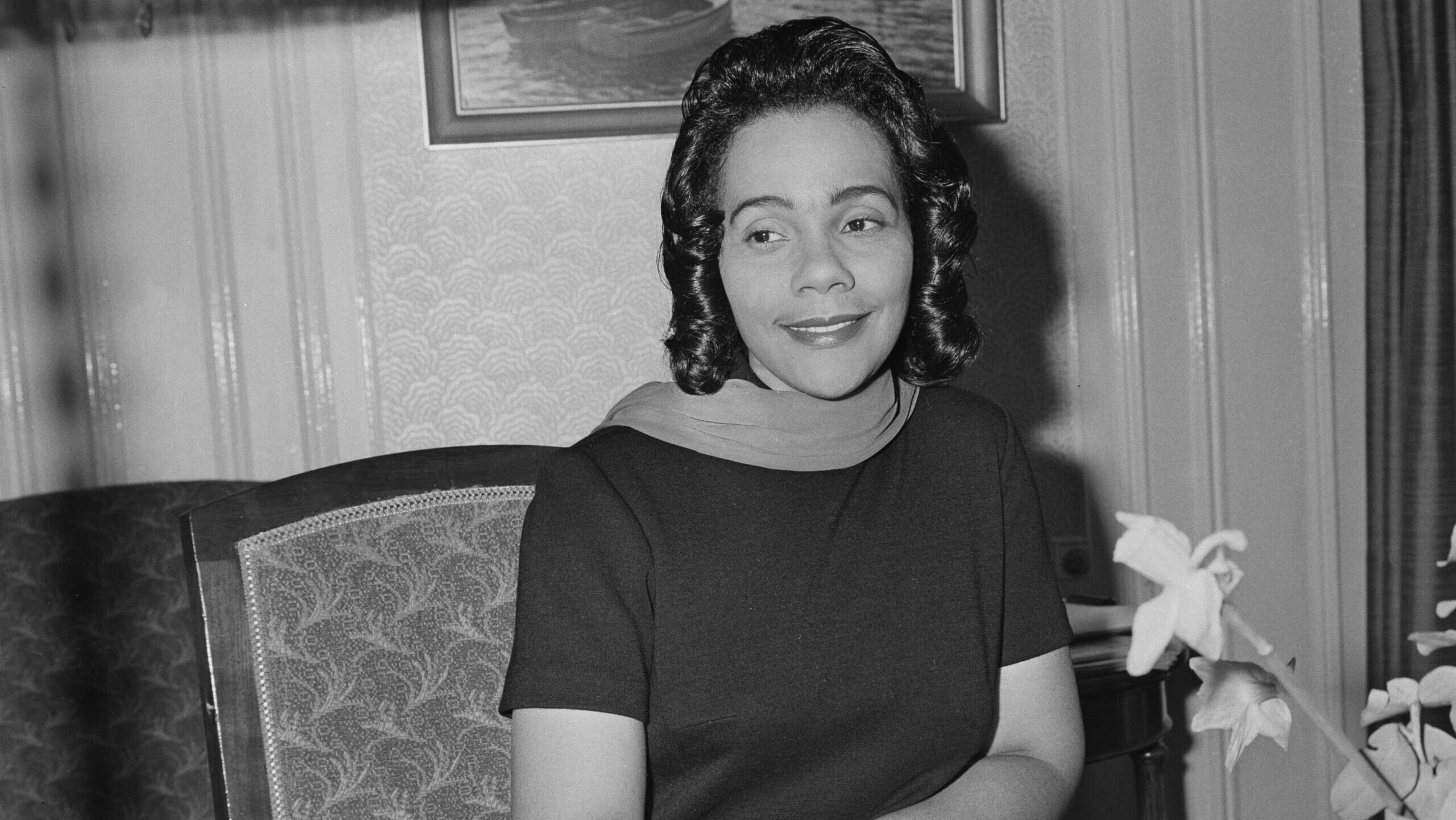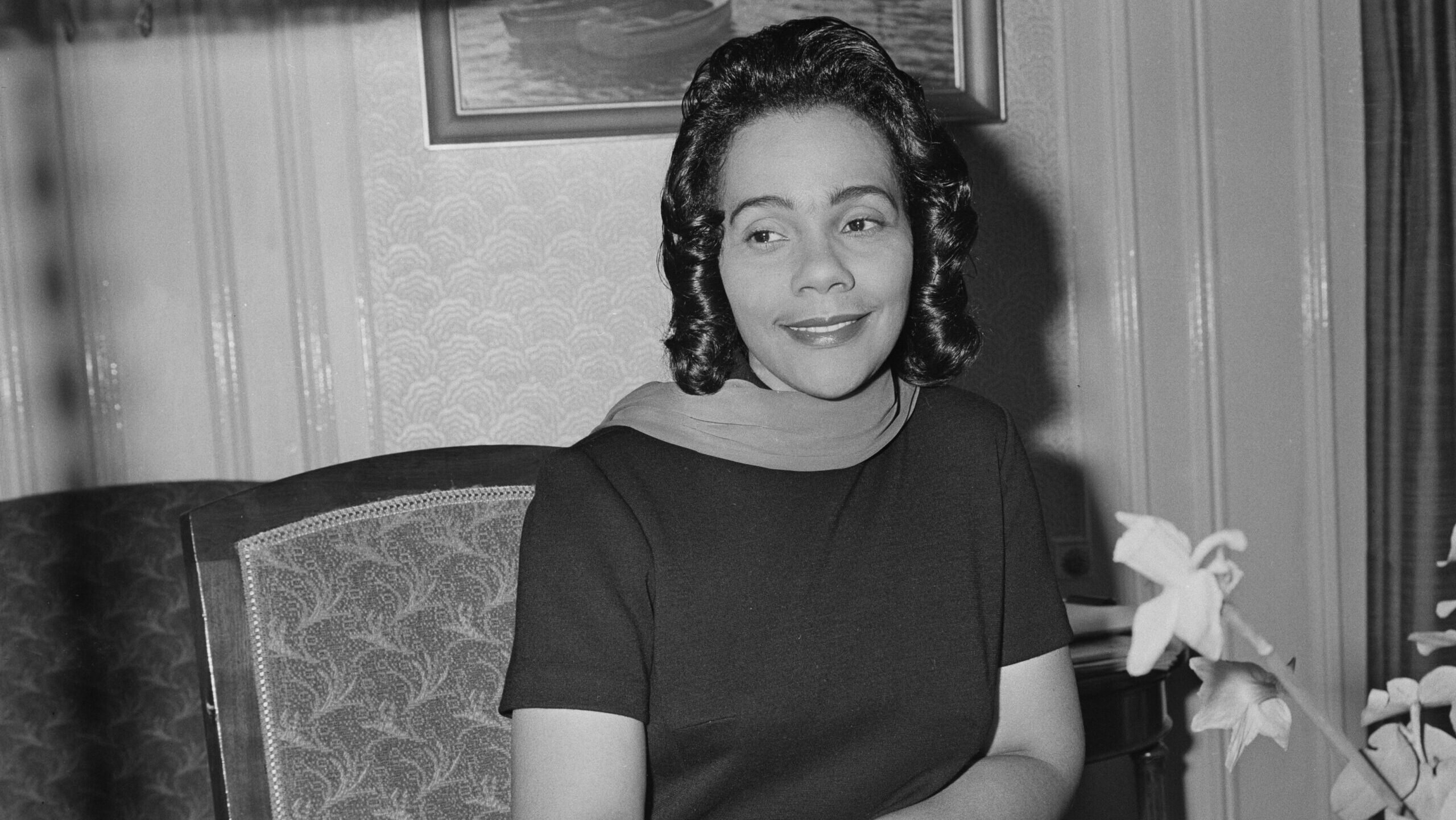
Coretta Scott King was more than the wife and widow of Martin Luther King Jr. She was an architect of justice and a leader in her own right. A classically trained singer turned activist, she was as comfortable in front of a protest line as she was on a stage, making the case that civil rights could never be confined to one man, march, or nation.
She was also a devoted mother, raising four children—Yolanda, Martin III, Dexter, and Bernice—while holding up the weight of a movement.
This month, as we mark Ovarian Cancer Awareness Month, we are taking a deeper look at the illness that claimed her life in 2006 at the age of 78 and what her story reveals about her legacy. Coretta’s death from ovarian cancer, one of the deadliest cancers affecting women, is often a footnote in public memory, but for Black women (especially), it is a reminder that the fight for justice includes the fight for health equity.
Long before the nation knew her as “the First Lady of the Civil Rights Movement,” Coretta was mobilizing for change—first as a student activist in Ohio and Massachusetts, and later on the front lines of the freedom struggle in Montgomery, Selma, and beyond.
After her husband’s assassination in 1968, she refused to retreat into grief. Instead, she stepped into a larger role. Within months, she founded The King Center in Atlanta, ensuring the movement’s heartbeat would continue. For the next four decades, she carried the mantle—not just of remembrance, but of driving progress for peace, women’s equality, LGBTQ+ rights, and environmental justice. She made it clear: The Dream was never meant to end in 1968.
From Alabama Roots to a World Stage
Born in Marion, Alabama, in 1927 to parents Obadiah and Bernice Scott, Coretta grew up in the thick of the segregated South. Coretta pursued music early, mastering voice and violin before enrolling at Antioch College in Ohio. She later earned a scholarship to the New England Conservatory of Music in Boston, where she developed as a talented soprano.
While in Boston, she met Martin Luther King Jr., who was then a young theology student. The two bonded over their shared passion for social justice, and by 1953, they were married. Though Coretta set aside her dreams of a stage career, she never fully abandoned her artistic side. She would later organize Freedom Concerts, blending music with storytelling to raise awareness and funds for the civil rights movement.
A Global Voice for Justice
In the 70s and 80s, while many tried to relegate the Civil Rights movement to the past, Coretta was forging international connections. She spoke out against apartheid in South Africa, meeting with leaders and activists who saw in her the same unyielding resolve that carried a generation through Jim Crow. She even lobbied for sanctions against the apartheid regime.
At the same time, she pushed for recognition of women’s rights as human rights. She championed equal pay, reproductive freedom, and protections against gender discrimination while also calling out the racism often ignored in those spaces.
And at a time when even progressive leaders were hesitant, Coretta was among the first national figures to openly support LGBTQ+ rights. For her, justice could not be selective.
A Quiet Final Battle
For all the years Coretta spent boldly advocating for human rights, her last fight was largely waged in silence. In 2006, she died of ovarian cancer at the age of 78. The illness that claimed her life is one of the most deadly cancers affecting women, in part, because it is so hard to detect early. Symptoms, which include bloating, abdominal pain, and changes in appetite, are often dismissed until the disease has progressed too far.
She is, unfortunately, far from the only Black woman to succumb to the disease. While Black women may not face higher rates of developing the disease, they do face higher mortality rates. Too often, diagnoses arrive late, treatment is inconsistent, and access to care is unequal. Coretta’s passing is a reminder of just how urgent these inequities remain.
A Legacy of Resilience
Even as her health began to fail, Coretta’s fight never diminished. Just weeks before her death at a holistic health hospital in Mexico on January 30, 2006, she appeared in public for the last time at an MLK celebration in Atlanta. Her funeral—which drew notables including four U.S. presidents among the thousands of mourners—reflected the profound respect she commanded as a leader whose voice mattered far beyond her famous marriage.





